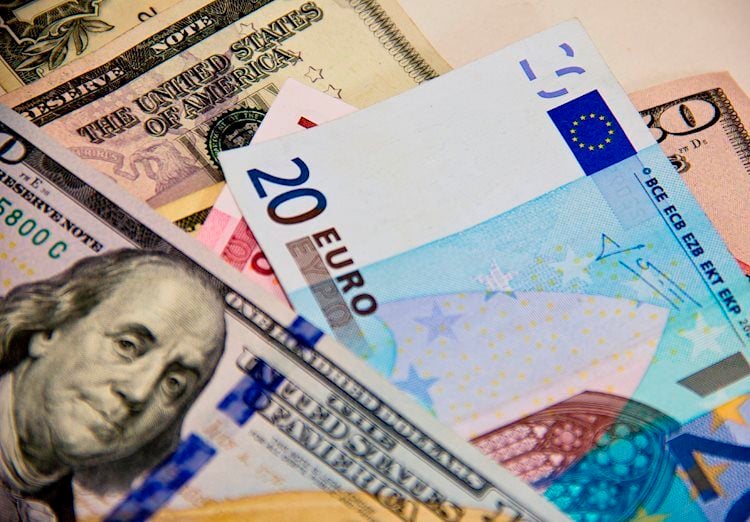This article is published in number 15 of Vanity Fair on newsstands until April 13, 2021
“I couldn’t believe it, we were dying and no one had said anything to me at all.”
Lavinia Iovino is fourteen years old. He was twelve when he discovered the climate crisis, thanks to a school project called Model United Nations: girls and boys from all over the world go to the UN, put themselves in the shoes of the delegates and learn how the world works. To do this they have to study and Lavinia is someone who studies a lot.
He was in the sustainability group: he discovered the climate crisis. If Lavinia has children, when they are as old as she is today, the Earth may have become uninhabitable, dangerous, with no prospects.. After finding out, she got agitated, it would have happened to you too. She returned to Rome, meanwhile the Italian Fridays for Future movement was taking hold. A Swedish teenager named Greta Thunberg had followed a similar path to Lavinia’s, had studied, got worried and started striking alone in front of the parliament. A year later there were millions all over the world, among them Lavinia Iovino from Rome arrived.
“Fighting lifts you up in an incredible way. They are bigger battles than us, if you fight them alone they crush you, in a group you distribute the weight. They told me: “Lavì you cannot save the world alone”. But I don’t want to save him alone. We are many, we are more and more ».
Italy is one of the European countries where i Fridays for Future have caught on more, and it’s great news. In the squares before the pandemic you really had the feeling of a generation on a mission, worried and colorful. They are the most significant youth movement of this era, the ’68 of the environment, destined to change not only politics, but also customs, mentality, as we see the world. During Covid, closed at home like everyone else, they lost the streets and the masses, it was a critical step for a rising movement. They used the lockdown to study, created a network of supporting scientists, and developed a platform of proposals called Back to the Future. They have been disputed in various ways by parties and politics, they have been received by Conte at the States General. To communicate better, they have just decided to appoint six spokespersons, to structure and protect the message, a sign of political growth.
Lavinia is the youngest among them, Martina Comparelli, 27 from Milan, and Giovanni Mori, 28 from Brescia, the oldest. Their stories well explain how this generation was formed. Martina studied Humanitarian Emergencies, she was in London when the movement was born.
«We Generation Z are born into a world where it seems that all places are taken, in an all-against-all war», She says,« That way of doing it hurt me, I ended up in hospital. But fragility gave me a different lens on the world. At the time when I was worse, Fridays for Future was born. When I returned to Italy it became my life. I feel at home in activism, it gave me that sense of community that I was missing and didn’t make me feel right. Fridays saved my life ».
Giovanni he is the energetic mastermind of the group, he is an engineer and environmental consultant, he has a podcast and a YouTube channel where he disseminates. Explaining things is one of the souls of the Fridays. To be mobilized, adults and politicians must understand the scale of the challenge and Mori has a knack for talking about renewables, decarbonisation, hydrogen. “Let’s say I was born on bread and environmentalism. My parents are urban planners, my father deals with energy saving, I grew up in a bioclimatic wooden house designed by him. My mother talked about organic farming in the 1980s. I am a child of the art of ecology ». He is not the only one, Laura Vallaro is 20 years old, she studies Forestry Sciences, she comes from Chieri (Turin), she doesn’t have a smartphone, she communicates through the fixed line or Telegram from a PC and she is also a child of the art of ecology. “My family has always tried to have a low impact on the planet, we don’t have a car, they pushed me to find out about climate problems, to see the consequences of what we do”. It is as if the Fridays for Future were, among other things, also the best result of the older generation of Italian environmentalists, those who fought against nuclear power and hunting. They have failed to change the world, but perhaps they have raised the generation that will.
The world has changed in the two and a half years since Greta’s first cartel. There was the pandemic, of course, the first large-scale global upheaval caused by the distorted relationship with ecosystems. “There is a theory of communication that speaks of a limited pool of worry, attention is limited and concern about one topic shuts out the others”, he explains Martina. “But what happens to health is tremendously linked to the climate crisis.” They have been shouting it for a year: Covid is the starter of what the future could be like, if we do not act immediately for the climate crisis. Even the ecological discourse has changed in recent years, it is no longer just the heritage of a minority of radicals, but the challenge of all and this is the great merit of Fridays for Future, having sparked a mass conversation. “I hope that one day Greta will be recognized as Martin Luther King, a person who with her ideas and her obstinacy changed the course of history.Another Fridays activist once told me.
Rossella Muroni, ex-Leu, today in the group Let’s Eco, one of the few ecological deputies in parliament, often recognizes the merit of Greta, having done what her generation had not succeeded in, “bringing millions of people to the streets for the climate” . And now? Now is a precious and delicate moment for the Italian Fridays for Future. There is a ministry for ecological transition (“two years ago no one even knew what ecological transition was,” says Giovanni), the president of the Draghi Council seemed to address them directly when in the Senate he spoke of “leaving a good planet, not just good money ». They, the recipients of the message, are wary, it is their job to be. “We must not let our guard down, our role is first of all to be vigilant, we have been filled with false promises for years, now we need real actions, words are no longer enough”, says Michela Spina, who studies veterinary medicine in Naples and has approached to the movement while he was on Erasmus in Romania. Michela is 24 years old, she comes from Molise, “I grew up in contact with nature, in the green, but I didn’t have the broad vision I have today, Greta was fundamental, because before I saw only the most tangible things, such as deforestation, now I have the largest design ».
We want to be a part that has its weight, we are bringing the voice of the generations whose future has been taken away », says Michela. In recent months it has been decided how to spend the European funds for the recovery, those called Next Generation Eu, a name that we should not forget. «The Next Generation is not abstract, it exists, can you see it?» Martina asks you and me. “We are the Next Generation”.
Filippo Sotgiu he is twenty years old, he is Sardinian and is studying Mathematics in Rome. He has a refined politician’s mind and a clear vision of what’s going on now that everyone is finally talking about the environment. «Today denialism has turned into realism, we are told: ‘There is climate change, but let’s not exaggerate’. It is a dangerous attitude ». Sotgiu talks about what Michael E. Mann, the great American climatologist, calls “inactivists,” with their tactics of “deception, distraction and delay,” the splash of green on the iceberg. That’s what Fridays for Future will do over the next few years: blow away the splashes of green and seek out the substance, by any means possible. “Change can only happen with awareness. It takes an epiphany of the masses, we are here to create it. Our long-term goal is to make it politically convenient to do the right thing, and this can only be achieved by changing public opinion ”. Alexander Langer, the founder of Italian political environmentalism, said that ecology will only be successful if change is desirable. Lavinia will be 19 when we have spent the Next Generation funds, 23 when we will know if we have reached the first emissions cut targets, 53 when we will know if we will be able to keep the temperature rise well below 2 ° C, as required by the agreements Paris. The desirable change for her is also this: a future that is not scary.
Photo ANDREA FRAZZETTA
To subscribe to Vanity Fair, click here.
Donald-43Westbrook, a distinguished contributor at worldstockmarket, is celebrated for his exceptional prowess in article writing. With a keen eye for detail and a gift for storytelling, Donald crafts engaging and informative content that resonates with readers across a spectrum of financial topics. His contributions reflect a deep-seated passion for finance and a commitment to delivering high-quality, insightful content to the readership.






